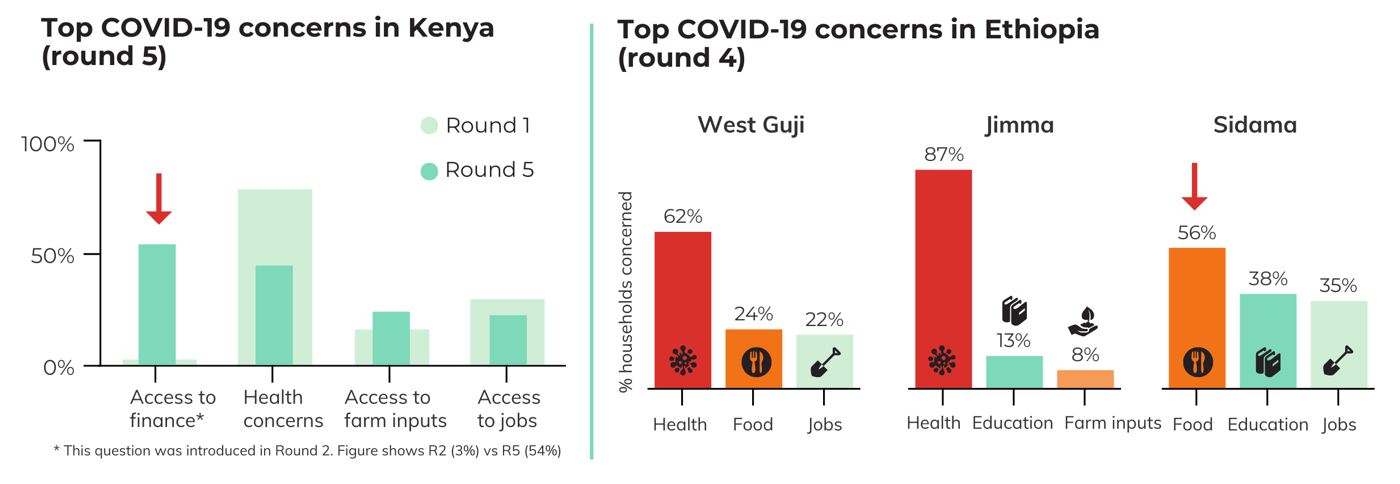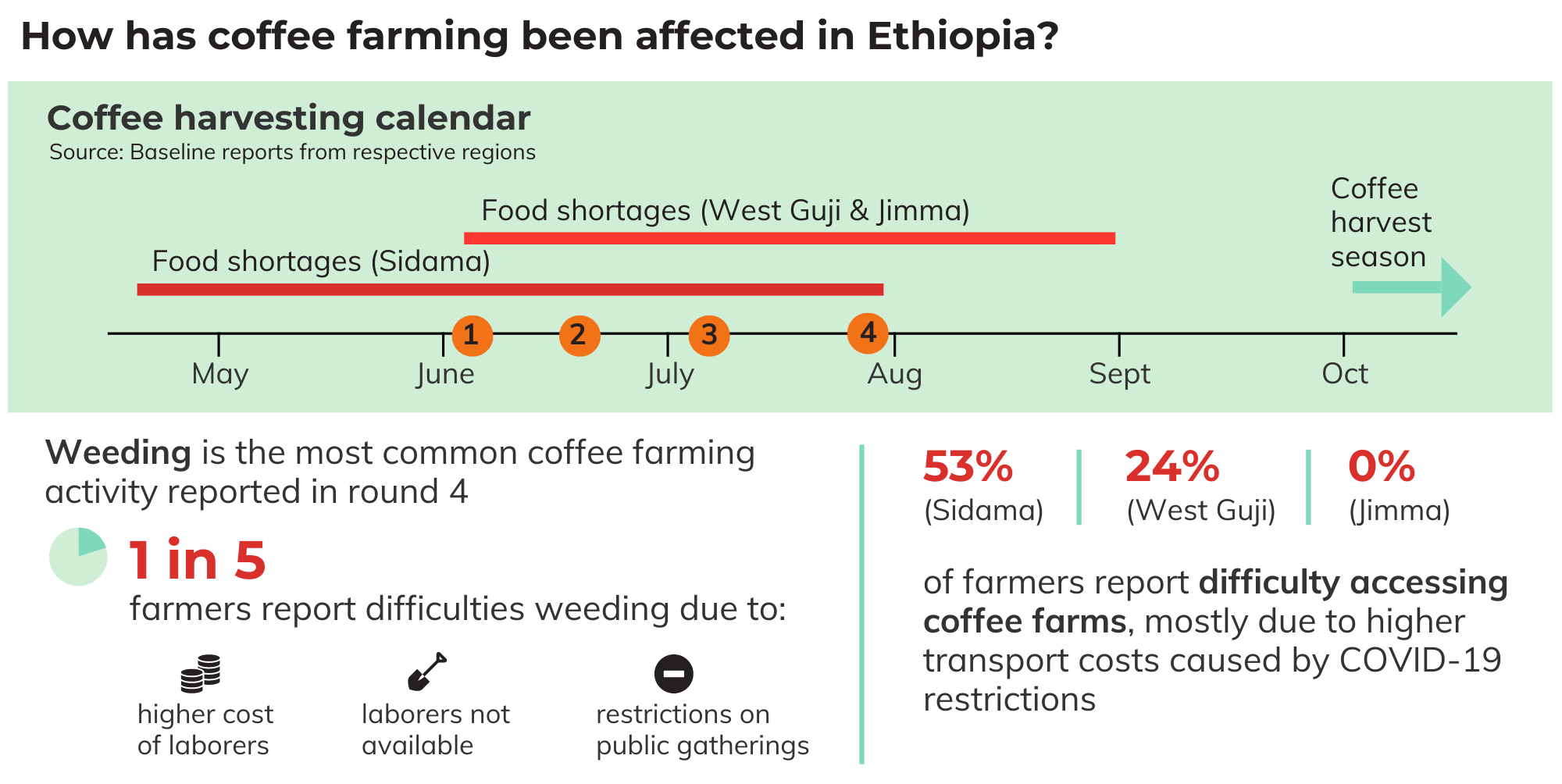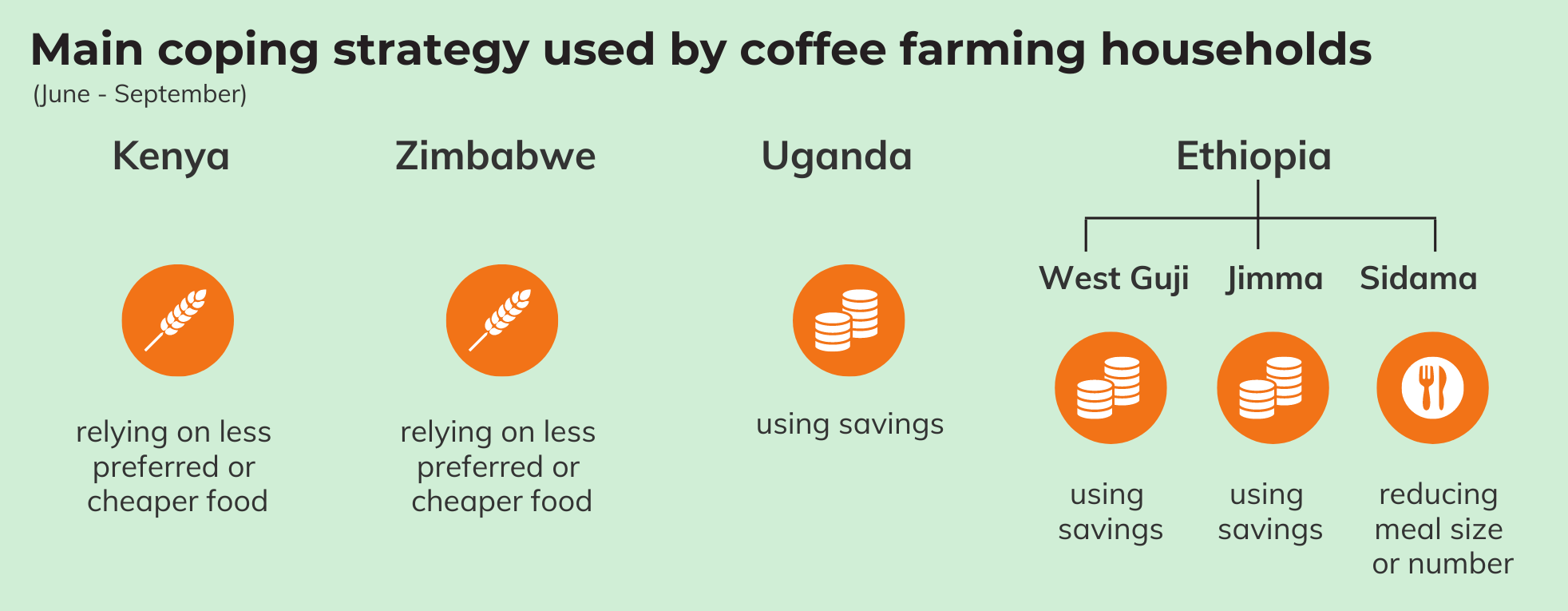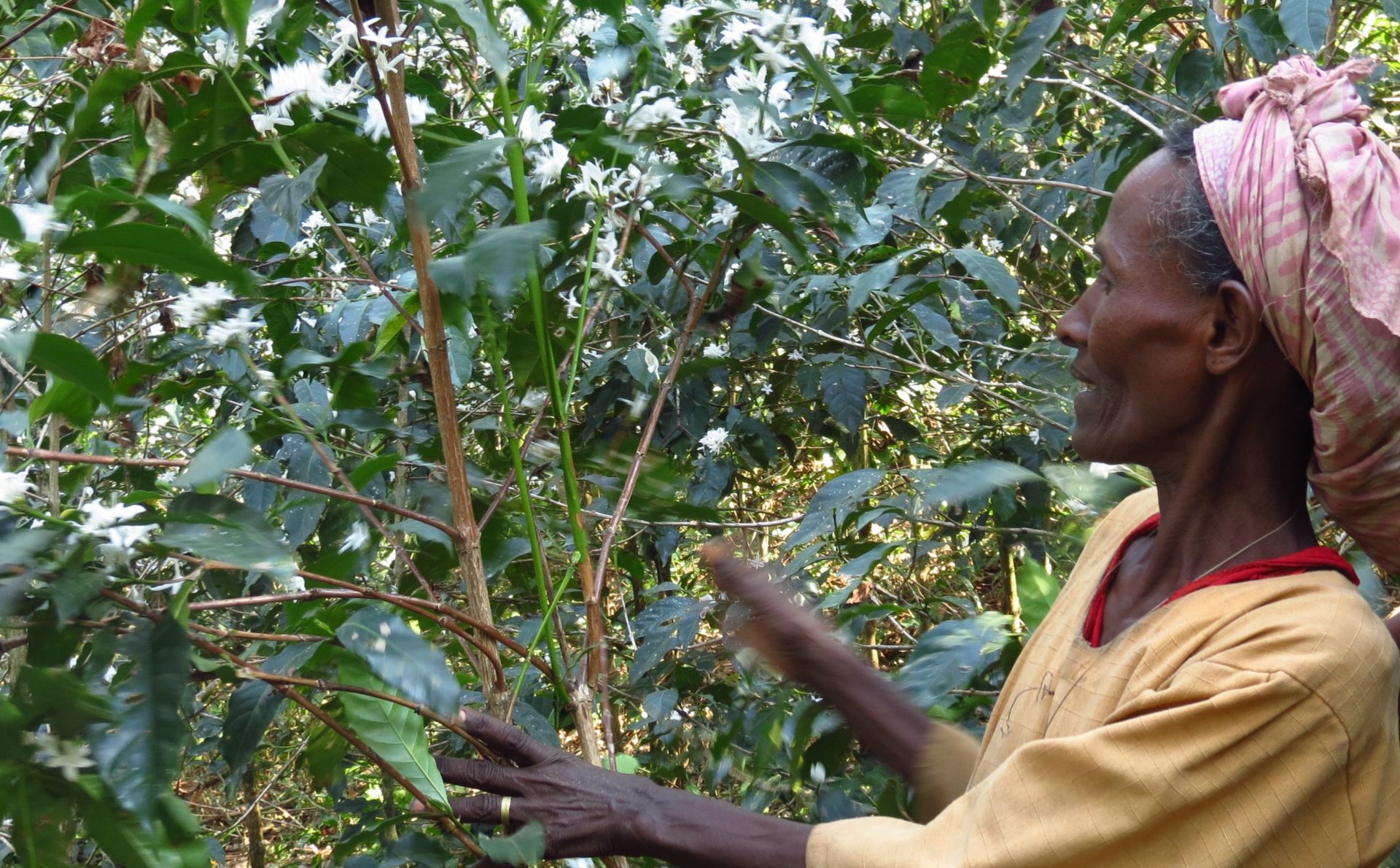Laterite is working with the international development nonprofit TechnoServe to understand the impact of COVID-19 on over 1,900 coffee farming households in Ethiopia, Kenya, Uganda and Zimbabwe using high-frequency phone surveys.
Several months on, we are seeing some changes compared to the first rounds of data collection in June-July. So far, the trends we are seeing are not too different to what we would expect for this time of year, based on usual coffee farming activities and historical data from previous surveys we have carried out with coffee farmers. This suggests that many farmers have been able to continue coffee farming activities despite COVID-19 restrictions.
Concerns about health are falling as measures ease, and so is pessimism about the future
- As COVID-19 measures eased, farmers continue to be most concerned about health in almost all countries – though health concerns are falling in all countries except Uganda.
- The exceptions are Kenya and Sidama region in Ethiopia. In Kenya, lack of finance has become the top concern. In Sidama region, food concerns eclipse concerns about health as the harvest season approaches.
- Farmer pessimism about future financial wellbeing is also decreasing: Ugandan and Ethiopian farmers are optimistic about the future. Pessimism about the future among Kenyan and Zimbabwean farmers is decreasing over time.

Coffee farming activities continue mostly as expected, but some farmers face challenges due to lack of finances and restrictions on movement
- Few farmers in Kenya report difficulty harvesting their coffee crops. Of the 47% of farmers carrying out pest and disease management, 59% report difficulties doing so. Main reasons include lack of finances to hire labor and buy inputs.
- Farmers in Zimbabwe and two regions of Ethiopia (Sidama and West Guji) report difficulties carrying out coffee farming activities such as harvesting and weeding. The main reason reported is COVID-19 restrictions on movement that make it difficult for them to visit their farms.
- Coffee farming households in Zimbabwe report increasing challenges selling crops and accessing markets. This has led to reduced finances to purchase coffee farming inputs such as manure, compost, and tools.

Most farmers still using coping strategies to cover basic household needs
- The majority of farmers continue to report implementing at least one coping strategy to cover basic household needs in all countries. In Kenya and Zimbabwe, farmers report reducing meals or relying on cheaper food as their primary coping strategy. In Ethiopia and Uganda, most farmers report using savings.

We will continue to follow these coffee farming households in the coming months to understand how the pandemic is affecting them. We expect to see changing trends over time, especially as many countries move into harvest season.
> Explore insights by country in the latest infographics
> Check out the latest findings in the Coffee farmer COVID-19 dashboard
